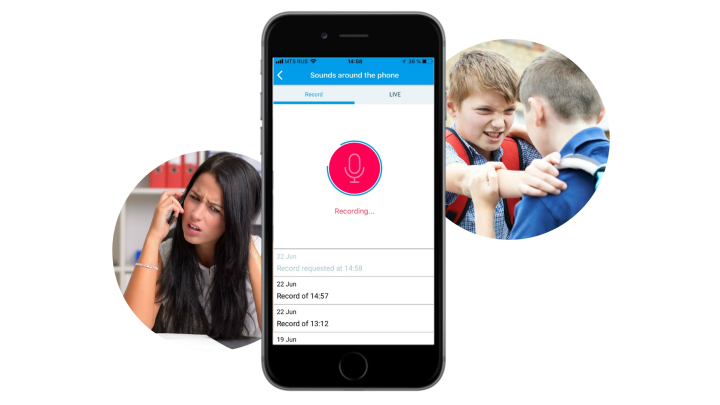Helping a Child Adapt to a New Group: Hello everyone, I’m new!

Situations where a child joins a new group – be it at school, a new circle of friends or sport team – happen regularly and for some more than others. A new group always incurs stress in that it makes you try to adapt as easily as possible.
Findmykids tells parents what they should do in order to help the child adapt to the new group painlessly.
Depending on their age the child will worry about different aspects of their life in the new group.
The adaptation of primary school students
If a child has moved to a new class in primary school, then it makes sense to talk to the new teacher yourself. Keep in mind that the child will spend a large part of their time in school under their control. Thus, they will build relationships with them, often depending on their success or failure in school.
It’s important for parents to find a way to approach the teacher. Ask them for help, talk over the impossibility of discussing your child’s misses and mistakes in all classes, but only in person.
The adaptation of high school students
If we’re talking about high school, then the relationships with the teachers won’t be as important as the relationships with classmates. And here it’s important to help them to establish communication with other kids in their class if the child struggles with this.
What to do?
-
Don’t impose your own experience
The first thing that parents should do in order to help their child pass this test is to separate your own personal fears and worries from those of your child.
It’s very possible that you had an unfortunate experience moving to a new group. But this doesn’t mean that your child will be faced with the same difficulties. Here a golden mean rule will be relevant: don’t try to completely control your child’s school life, constantly finding out who said and did what, but it is also not necessary to be completely separated from it, hoping that they will figure it out for themselves.
-
Watch over the child
Do you try to keep track of how much their behaviour changes after they start a new school? Have they started to cry more, become silent, close themselves up in their room? Stopped playing their favourite computer game and constantly sleep or, on the other hand, play for hours at a time, not even stopping to eat?
If you answered at least one question positively then maybe you can be sure that your child is under a lot of stress linked with their adaptation into a new group.
-
Talk with your child
Simply talk with them. Don’t confine them to standards: ‘How was school?’ Ask more specific questions, for example:
‘I noticed that you’ve become a little sad, you don’t smile, don’t tell me any news. Maybe you can tell me what’s worrying you?’
In everyday conversations over a cup of tea make time not only for positive questions (but remember to include them also), but also for similar questions:
‘Tell me were you upset today in school? What did you worry about today? What was hard for you to do? Which of the kids said or did something insulting to another child today? Who swore at a teacher and for what? What do you think about this?’
-
Participate and support
First of all, you need to understand that a child needs support. Unfortunately, in our society support isn’t accepted, but depreciation is (‘Yes that such-and-such has gone to another class, would they devour you there? What are you afraid of, you’re a man! Come on, stop moaning, don’t embarrass me, you’re not little anymore…’ etc.). The most common variant of depreciation is: ‘Don’t worry, it’ll all be ok’.
It’s normal to worry! If you forbid a child to worry, then you are delaying their adaptation
Put yourself in the child’s shoes: you arrive to a new group, everyone is looking at you, judging you, laughing at you (especially if you are different), whispering about you and you need to find out how to approach different superiors (teachers). You need to know many spoken and unspoken rules that the group has already formed. You need to figure out how to somehow fit into this group, but you are, by default, an outsider.
You can support your child by sharing your emotions with them. Show them that you understand, that they’re not alone in their feelings, and that you may have experienced the same. Good words of support could be:
‘I know that this isn’t easy for you. Anyone in your shoes would be worried. It’s normal. Both myself and your dad went through the same thing (here it’s a good idea to share your experiences). It’s a really difficult stage, but tell me how we can help?’
“Findmykids” advice
If your child still doesn’t make contact, but you suspect that they’re having problems, you can engage them in a conversation with another adult that they trust (your friend, trainer, psychologist).
If, in this case, the child refuses to share their worries with you, use this life hack:
Install the app Findmykids and listen to the sounds around the phone when they are at school. You will be able to listen to everything that is going on within a radius of 1-2 meters around the child. So you will be able to figure out exactly what the child’s behaviour is linked to, whether it be bad relationships with peers, mocking from older students or conflicts with teachers.
 |
Install the app FindmykidsTo listen and record your child’s surroundings! |
|
 |
 |
|

Проверьте электронный ящик



















